Damp is Like Feces?
A patient once told me that, for years, she had avoided eating soup or moist foods such as warm applesauce and fruit because her acupuncturist had warned her against Damp.
Her acupuncturist had told her, with a straight face, “You are too Damp: you need to avoid Damp food.”
Soup and moist foods would have been perfect for her. They literally are damp foods: foods containing moisture, healthy foods. Moist foods were just what she needed.
Remember, damp foods, foodsfull of moisture, are good for us.The acupuncturist should never have used the code word Damp when what she meant was “greasy, rich, and heavy.
”Most of what we learn is code, and does not translate into anything conversational in either English or Chinese. A Chinese speaker has no more idea of what “damp food” is than does an English speaker. “Damp” is a medical-code word.
For English speakers, the code is all the more befuddling because of some very poor translations. Happily, some words such as Yin, Yang, and Qi just stayed in their Chinese form. But some words, such as “Damp”, were translated into English incorrectly.
The Chinese word that we translate as “Damp” is Shi (flat tone). It’s pronounced like a cross between shuh and shih.
This word, Shi, that some English speaker decided to politely translate as “Damp” doesn’t mean damp. It means “clammy” or “sticky” in the sense of “humidity”. The word Shi also means excrement, which is often clammy or sticky. If Shi is prefaced with the Chinese words meaning hot or cold, it can also mean diarrhea.
Remember, this translation into English was made back in an era when even the word “perspiration” was not acceptable in polite or mixed company, let alone “sweat”or, God forbid, “bowel movement.”
My beloved professor, Dr. Jeffery Pang, used to say, “Shi: it’s easy to remember this word. It’s just like your own English word” (and here he grinned and assumed a really deep-voice, southern drawl pronunciation): “shi-i-i-i-i-t”.
And then threw back his head and laughed.
We never understood, in all our years, how often Dr. Pang was just making jokes in order to help us remember stuff.
That Dr. Pang was making up these jokes and phrases for us in English, which he was still struggling with, attests to his depth of understanding, his extreme intelligence and flexibility of mind.
We students had no idea. We dutifully wrote in our notebooks “Damp is like feces”.
We had no idea what this obscure, mystical phrase meant. We could only hope we would be told in some other class, maybe by an native English speaker. We never were, of course.
Back in the earliest days of translating Chinese medicine into English, the Chinese code word Shi in its meanings of both clammy and excrement was gently mistranslated into the word “Damp”. The mistranslation continues in present-day usage.
This mistranslation makes for much confusion. For example, we are taught in Chinese medical school: “Damp is always bad.”
This makes no sense, in English. We think of the sweet morning mist as damp. When a child falls asleep in our arms and his skin breaks out in a tender, moist, dampness, it is endearing.
In The Battle Hymn of the Republic we sing, “We have builded Him an altar in the evening dews and damp.”
We love the gentle damp, the clean, refreshing damp.
I was deeply frustrated with the idea that Damp was necessarily a bad thing. But my teacher insisted: Damp is always bad.
What we students took away from this, incorrectly, was that, for some reason, moisture is bad for your health.
Years later, I learned of this mistranslation from an intern. Fang Cai was brilliant in English and Chinese. She was born in China. She came to the U.S. when she was nine years old. Her father was a Chinese academic, so she retained and increased her Chinese language skills even as her English waxed poetic.
I sing her praises: she mastered English so quickly after coming to the states that she was accepted at Swarth more College, one of the most selective colleges in the U.S., and one that places large emphasis on English language skills.
I mention this to give credit where credit is due, and also because so many people have said to me, “Where do you learn this stuff?” I learn this “stuff” from so many wonderful, sharing people.
After graduating from college, Fang (pronounced Fong) got a Master’s degree in Chinese medicine.
While interning with me for a summer, she mentioned, casually, “Damp is the wrong translation.”
I asked her what the correct word would have been. By way of reply, she made herself comfortable, fixed me with a glittering eye, and delivered the following:
“Imagine you are driving for hours in the winter. It’s been raining and cold all day. The heater in your car is broken.
“Now it’s night-time. You’re driving on back roads. You might be lost. It’s still drizzling. You are cold, worried.
“You finally give up on driving any farther. You look for a motel to stop for the night. You find one. You pull into the parking lot.
“The small motel is seedy looking, and you’re the only car in the lot. You get a room key from a sullen clerk. You go into your room. It’s cold. You can tell no one has been in that room for weeks. Still, you are tired so you get into bed and as you slide between the sheets, they feel...clammy: Shi.
Fang continued, “In medical school, you always see “Shi” translated into English as Damp. That’s a wrong translation. Shi means clammy. Shi also means loose stools. Shi does not mean damp.”
Hot clammy situations can use the code word Damp as well as cold ones.
When it’s hot and humid,your sweat won’t evaporate. Your sweaty clothes and your sweaty hair stick to your skin. Your skin feels clammy. If the humidity is too high, your thinking becomes muddled or your mood gets irritable. Your vitality might seem like it’s being sucked out ofyour body.
Hot and clammy is very similar to cold and clammy. They are both always conditions of too much disorganized moisture. They are both always bad for humans.
Clammy, or “disorganized or sluggish movement as opposed to flow” is possibly a better translation of the code word Damp as used in traditional Chinese medicine. “Damp” in Chinese has even more specialized meanings if combined with the words Hot, Cold, or Lower Jiao, aka Lower Burner (gut).
So don’t be confused when your teacher tells you that Damp is always bad. What he means is “Any situation that causes slowing or disorganized flow of channel Qi, that makes it hard for the Qi in the channels to flow linearly, including disorganization that stems from high humidity, whether cold or hot, is always bad: it’s always hard on the human system.Loose or runny stools are a digestive reflection of this channel Qi disorganization.
You will find Damp combined with other code words: Cold and Damp, Damp Heat, Heat-and-Damp, and Spleen Damp. These terms usually have nothing to do with climatic dampness. And in Chinese medical code, which is different from Chinese language, Shi (Damp) only means loose stools when combined with the code words “in the Lower Jiao”.
And this is a convenient place to drive home the point about word order: Damp Heat is different from Heat and Damp. Word order is sometimes significant. You probably suspected as much. After all, it’s code. It’s not words:not language.
Currents gone awry
The reason “Damp/Clammy” is always bad has to do with –surprise –channels. Disorganized water molecules found in situations of high humidity with no clear directional force have an electrical affect on the channel Qi flowing just under the skin.
Going briefly back to the general subject of channel Qi flow, be aware that, if the largest, just-under-the-skin currents fall into disarray, all the smaller, subsidiary currents in the body can fall into disarray as well. Happily, the organs, the cellular structures and DNA, and the electromagnetic signals of a well-balanced mind and heart all provide steadying ballast for the currents. This ballast helps the currents, the flow in the channels, stay somewhat organized and flow mostly in their correct patterns even when temporarily challenged by pathogens, injury, or bad weather.
The tiny electromagnetic stimulations created by the movement of charged water molecules close to the skin have an influence on the currents that run just under the skin. Happily, your body is able to counteract these charges if the moisture is moving in a somewhat organized fashion.
But moisture can be a particularly disruptive influence, especially if it involves erratic movement of charged particles, such as the billions of randomly moving water molecules that you get with high humidity.
For example, if you are walking into a driving rain, your body is able to detect the direction of the wind and rain and vigorously counter the electromagnetic forces that are coming at you. In this way, your basic energy system can remain stable even when confronted with what would otherwise be a destabilizing electromagnetic field.
Your body may need to summon up some extra energy from the universe to do this, and this extra energy you pull in might bring color to your cheeks and brighten your eyes, as well as keeping the channels flowing correctly in defiance of the weather.
No harm comes to a healthy person from walking a few miles in a driving rain.
Returning to the problem of Damp: what happens if the moisture has no clearly detectable direction? In the miasma of a heavy fog, the tiny water droplets are swirling around chaotically. If you’ve ever been in a deep fog, you know how tiny droplets can be moving up, sideways, down, all at the same time.
There is no way for your body to figure out a compensating pattern. As your body keeps trying to figure out how to keep the main channels, just under the skin, flowing correctly, while under this relentless attack of unorganized water molecules, you quickly become tired, your mental confidence can begin to lag.
Your body starts telling you, “I’m not sure what we’re doing here. Can we get out of this mess?”
Cold clammy sheets behave the same way as a fog. As you climb into the sheets, the water molecules are unorganized, randomly sticking to the sheets, and then to your skin, and then to the sheets again. Your body behaves as if billions of tiny magnets are pulling back and forth on your skin. You feel bad, unsettled. Your energy is sapped as you exert an enormous amount of reserves to keep your channels moving in the correct flow patterns while simultaneously having to exert extra energy to stay warm.
In hot, humid weather, the same type of attack can occur. Randomly moving water molecules exert undue influence on the body’s electrical circuits.
The humidity in oppressive, hot air moves all around with no organized sense of direction. Just like with the clammy sheets, the humid air on a day with no breeze and high pressure can attack the skin like billions of magnets that keep attaching and pulling off again. It’s exhausting.
Clammy, humid weather is always hard on humans.
Healthy damp weather, as we understand damp in English, can be refreshing: when the cool ocean breeze rolls in after a day of heat, the moist air flowing in a clear direction off of the water and over the land is delightful. In English, damp can be very, very good.
The translators were utterly incorrect when they used the polite word Damp instead of the more accurate words Clammy, Sticky,or Humid.
Other forms of gunk in the body ranging from pus to mucus are also poor-conductors or are non-conductive. This means that channel Qi cannot flow easily, if at all, through these gloppy accumulations. The channel Qi, trying to move through these substances, loses its sense offlow. Therefore, these things are also “Damp.”
Your Chinese teachers cannot correct this mistranslation because when they look in their Chinese-English medical dictionary, they see that “Damp” is the officially approved translation for “Shi”. Your English-speaking teachers cannot correct the error because they never knew the correct translation. We are stuck with Damp.
The following may help further your understanding of the dangers of Damp/Clammy.
Damp and world politics
Dr. Tuan Anh Nguyen, a highly respected Vietnamese MD and herbalist in his native country, now living in Pennsylvania and practicing acupuncture, shared the following bit of history with me.
For two thousand years, the Chinese wanted to take over Vietnam. Repeated attempts were made. But the Chinese soldiers were never able to vanquish the mountain people who live in the highlands separating Vietnam from the mainland of China.
The highly trained armies of the various Emperors were never able to make a lasting conquest of the simple people of the high hill country. In the hot, humid mountain jungles of northern Vietnam, the skilled, vigorous Chinese soldiers would become lethargic, enfeebled, and lose focus.
It wasn’t until the twentieth century that the Chinese military undertook a study of what enabled the Vietnamese hill people to stay strong and nimble despite the muggy, debilitating climate.
Here is what they discovered: the native diet of the hill people features Yi Yi Ren, a grain that’s a form of oversized barley, a grain similar in many ways to oats. The hill people boil the Yi Yi Ren in the belly of a pig for a long time.
The resulting stew made of grain and pig belly combined is extremely nourishing. Almost excessively so. This type of food would be overly cloying to a person living in a dryer climate.
Thousands of years ago the mountain people had figured out that this combo, stew made of oat-like Yi Yi Ren boiled a long time in the belly of a pig, was what they needed to remain healthy and hearty despite the extremely humid conditions.
When the Chinese military figured this out, they fed their soldiers Yi Yi Ren boiled in pig belly.
The Chinese army then marched easily through the mountains and, in short version conquered the residents of the Vietnamese border, and converted the north of the country to communism under the very noses of the French imperialist rulers of Vietnam. After about seven years of half-hearted resistance, the French bailed. The U.S. waged a war against the communists and lost. The rest is widely known history.
The crucial and obscure bit of history that Tuan shared with me hinged on the issue of Damp.
I was spellbound as Tuan told me this story. As soon as he finished, I blurted out, “That’s exactly like Hadrian’s Wall! The southern border of Scotland!”
He had never heard of Hadrian’s Wall. Well, I had never heard of the mountains of northern Vietnam, so we were all square there.
I settled in and cleared my throat:
More than two thousand years ago, the Romans had expanded their boundaries across the “known world,” meaning most of Europe, the Mideast, and northern Africa. But there was one bit of the known world they simply could not conquer: the area now known as Scotland, just north of England.
After more than a hundred years of trying to vanquish the doughty Celts, the Romans in the time of Emperor Hadrian made the sulky announcement that they didn’t really want the northern lands anyway.
Then, to keep the marauding Celts away from their well-supplied Roman forts, they built a tall stone wall that spanned Britannia, as it was then called, from east to west. Portions of the wall still stand. The wall extended in an almost straight line from the east coast of northern England to the west coast: from the town now known as Newcastle-upon-Tyne to the shore of the Solway Firth, just west of the town now known as Carlisle.
The climate of Scotland is very cold and clammy, with freezing sleet and swirling deep fogs.
Here’s the snapper:
The national dish of Scotland is haggis: oatmeal boiled in the belly of a sheep. The oatmeal and belly meat is eaten together, just as it is in northern Vietnam.
As I explained about haggis, Dr. Nguyen’s eyes were dancing. We savoured the parallels: in both cases, the native people were kept strong by their diet of oatmeal or Yi Yi Ren, herbs with similar nutritional qualities that famously counteract “Damp” (humidity), fortified with belly meat, a tissue with somewhat uniquenutritive qualities, no doubtdue to the special needs of stomach tissue to resist the corrosive effects of stomach acid.
In both cases the similar, and rather unusual, diets gave their channel Qi the ability to withstand the pull of humidity, the pull of the“Damp” of their environment. In both cases, the humidity had kept these simple mountain people safe from powerful, sophisticated armies for thousands of years. Their diet allowed them to thrive despite the “Damp,” despite the humidity.
Damp in the context of a patient’s constitution
A patient being described as excessively Damp might have a tendency to accumulate stagnant fluids, clusters of phlegm, fat, clusters of inflammation, orpus, or any other situation in which fluids or even electrons do not flow cleanly and purposefully thought the system –just like high humidity in conditions of little air movement.
This situation might occur in response to allergies, poor digestion, poor diet, lack of exercise, mental stress, and many other possibilities.
If it helps you to think of these patients as having excessive Damp, meaning the above, fine. You can use the word to stay in the “Pattern” system, the highly codified system we use to quickly match a patient’s symptoms with one-size-fits-all treatments for that particular Pattern.But don’t tell a patient that he has Damp, or that he is“too Damp.”
It makes no sense in English.
Damp food
Getting back to the opening of this article, some acupuncturists tell their patients that certain foods are Damp. This is just perpetuating a mistranslation. What acupuncturists should say is, “Certain foods create sluggish, heavy conditions in the body.”
Do not tell your patient that ice cream and fried foods are Damp. Please.
Say that they are rich. Say that they are greasy. You can certainly say that they cause digestive sluggishness. You might add that rich and greasy foods can cause the digestive tract and various organs to perform poorly or even incorrectly. This poor digestion might, in turn, cause a build-up of stagnant fluids or poorly moving electrical circuitry (channel Qi) in the body.
When talking to your patient, keep it in English. The word Damp is a very wrong translation.
In summing up, when your training directs you to the word “Damp,” think “clammy” “humid,” and “chaotic electron/molecular movement.” When talking to a patient, use the words sluggish or bloated. For foods, say greasy, rich, and heavy.
I hope this saves you from some bafflement. While I was in school, I would have greatly appreciated knowing that mistranslations abound and that it was OK to mistrust what I was hearing in class. For example, my teacher’s words implied that moisture was bad for humans. That made no sense.
If a statement doesn’t make sense or contradicts what you know to be true, don’t be afraid to question it. You may well have been handed the wrong statement.
Be of good cheer: when you know what the code words actually mean, both you and your patient are empowered to work on healing in a way that makes sense, as well as being highly effective.
Yes!
Courses By This Teacher






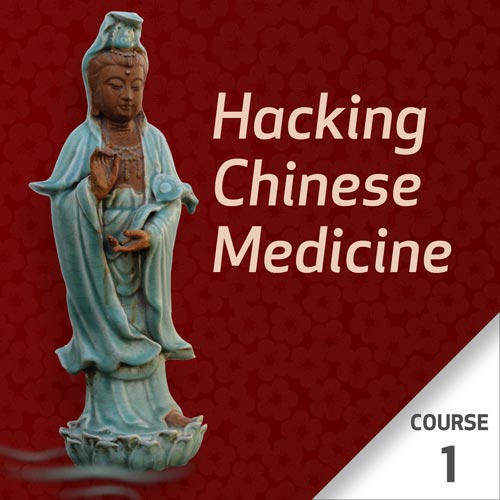

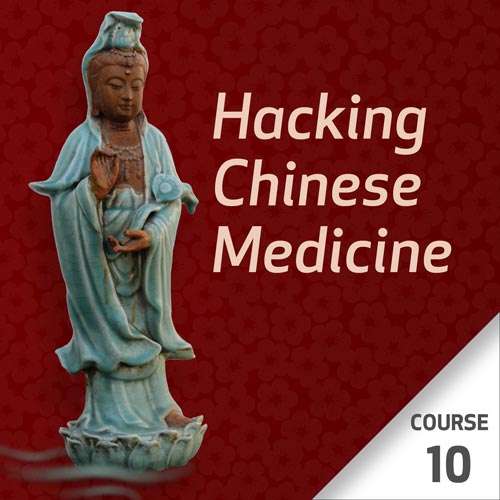

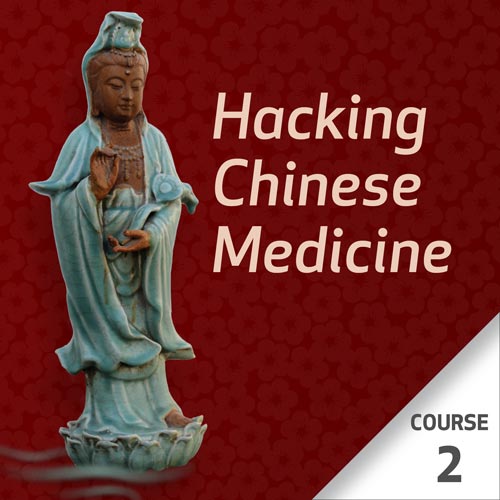

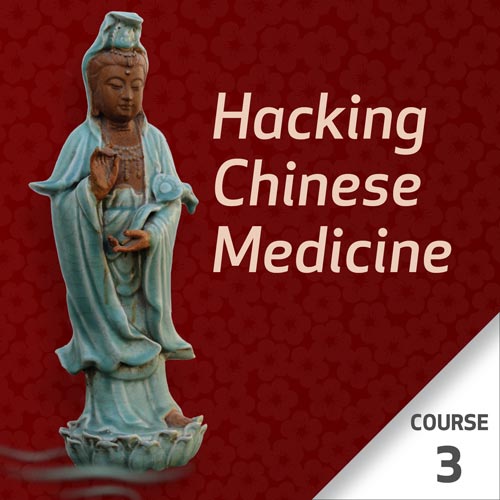

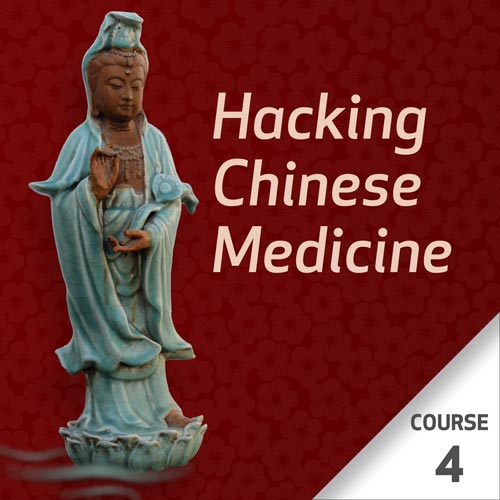

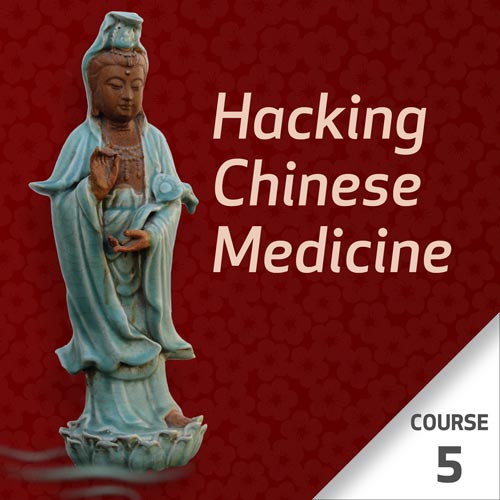

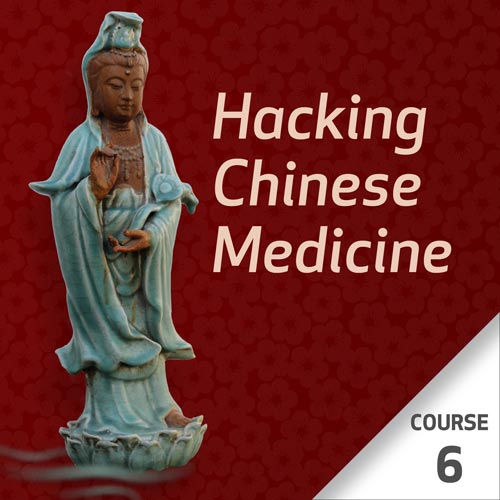

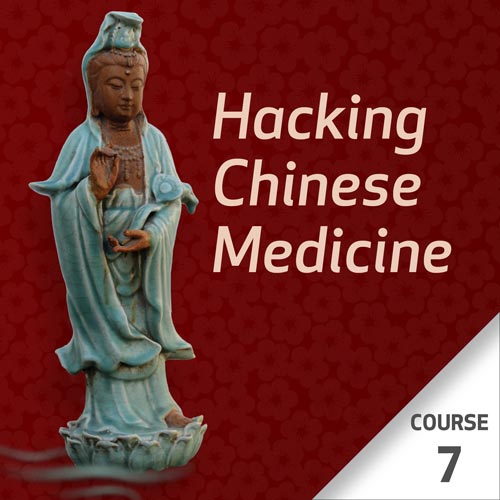

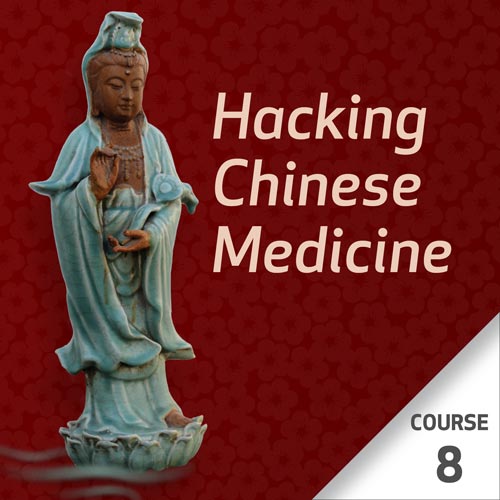

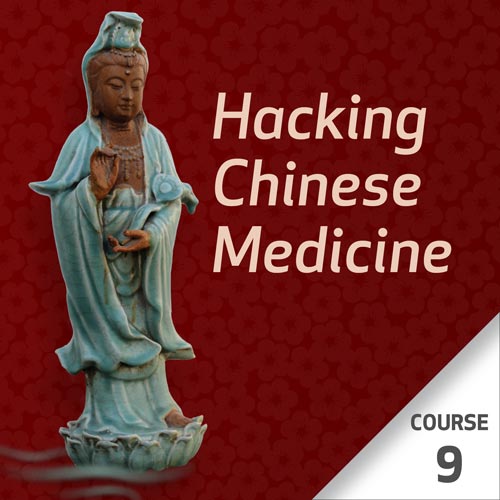

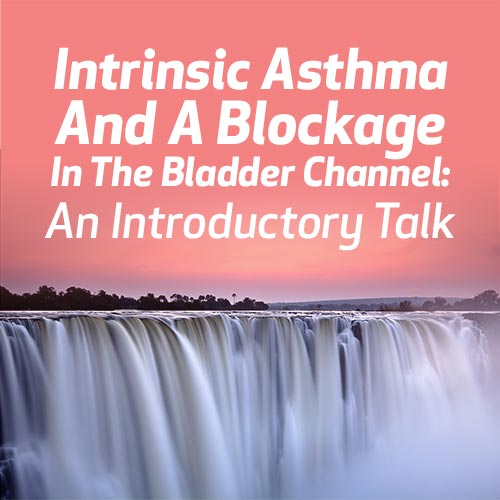

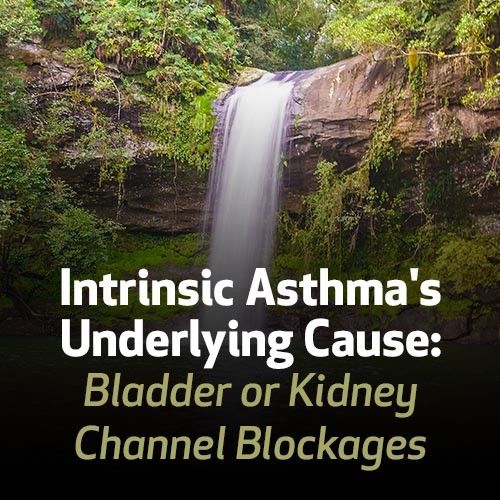

Overview
Don't guess! Don't needle locations that "might" be helpful. Know where the channel Qi is blocked or running amok, and correct it directly! Direct perception of the Channel Qi is one of the most accurate methods of determining the exact location of underlying disharmony, and makes obvious the exact location for needling in order to treat an individual's disease or pain. When you can feel channel Qi directly, you realize the literal meaning of "One channel attacking another," or "The channel diverges," and "Go through, no pain." Learn why in this class. This class will also explain how a cure for an "incurable" illness, Parkinson's disease, was discovered: via detecting a particular pattern of Rebellious channel Qi and realizing that this channel aberration is normal during shock or near-death trauma. Only by knowing where the channel has gone awry can one efficiently, elegantly, be certain of bringing the channel Qi flow back to "harmony," restoring health.
Learning Objectives
- Recognize references to Channel Qi diagnositics in the Nei Jing
- Learn to use direct perception of channels as a diagnostic tool
- Learn the healthy Channel Qi variations in various neurological modes
- Technique: describing a method for directly feeling the flow of Channel Qi
Your Teacher

Janice Walton-Hadlock
Janice Walton-Hadlock, DAOM, L.Ac., is a professor at Five Branches University, and specializes in Channel Theory, Yin Tui Na, Psychology and Counseling; she is the founder of the Parkinson's Recovery Project, and is an author on topics relating to Channel Theory and Parkinson's.
Categories
Tags
Overview
You can know exactly where to place acupuncture needles, and why.
Learn to detect, with your hands, the exact location of Channel Qi aberrations - the root of all mental and physical illness. Then discover specific styles of needle insertion that directly restore correct Channel flow at the point of the aberration – as opposed to hit-or-miss, hope-for-the-best treatments. Channel Qi aberrations, classically referred to as “Channel Qi Doesn’t Go Through,” are the energetic drivers behind all health problems.
Channel Qi blockages occur in highly specific, individualized locations – and you can detect these with your hands. These blockages force the Channel Qi into aberrant patterns, which then lead to compromised health. Stubborn physical or emotional blockages are only rarely diminished by distal-point or “indicated point” treatments. But when you breach these Channel Qi obstructions by strategic needling in the exact vicinity of the blockage, instantaneous healing often ensues.
You already have an innate ability to detect Channel Qi. Develop it.
Please note: It is highly recommended you complete at least one of these prerequisite items prior to completing this course: Watch a 1-hour recording of Janice's Advanced Channel Theory presentation and/or read the first 4 chapters of Tracking the Dragon, by Janice Walton-Hadlock. Registrants of this course should also try feeling Channel Qi prior to the course so that they have a sense of their ability.
Learning Objectives
- Anyone can learn to detect channel Qi, but it requires practice to understand what one is feeling. The demonstrations in this class will be directed at increasing confidence in recognizing the Channel Qi sensations experienced by the hands, and learning what the different sensations signify.
- To come away with a clear sense of how to feel Channel Qi and how to develop and test a treatment plan based on the aberrations in Channel Qi; learning confidence in one's ability to assess is also a key goal in this course, and this is best achieved through practicing.
- Learn to differentiate, using hand-detection, when Channel Qi is running correctly, backwards, or stopping.
- Learn to differentiate between the normal and healthy patterns of Channel Qi flow when a person is in parasympathetic, sympathetic, sleep, or dissociated (shock) mode.
- Learn needle insertion techniques that directly rectify Channel Qi aberrations.
Your Teacher

Janice Walton-Hadlock
Janice Walton-Hadlock, DAOM, L.Ac., is a professor at Five Branches University, and specializes in Channel Theory, Yin Tui Na, Psychology and Counseling; she is the founder of the Parkinson's Recovery Project, and is an author on topics relating to Channel Theory and Parkinson's.
Categories
Tags
Overview
“First inspect the channels, separating and following...then adjust them accordingly” – Su Wen
In this Level Two class, you will fine-tune the skills you learned in Level One, where you learned to follow the Channel Qi: Here you will learn to separate them, distinguishing between the various types of channel Qi.
Liver channel Qi gives off a very different signal than Spleen channel Qi. Kidney Channel Qi feels different from the Liver or the Spleen. Once you have even a mild sense for “following” the Channel Qi, you can quickly learn to tell the channels apart!
You'll learn to trust yourself when you feel unusual channel behaviors – such as Du Channel Qi responding to a blockage by floating up out of the body and into thin air – and understand why the patient with this pattern has profound deficiency symptoms that don’t respond to the usual tonics or stimulation.
Please note that Detecting Channel Qi Aberrations - Course 1, Level 1 is a prerequisite to this course.
Learning Objectives
- Differentiate between the sensations given off by the various channels, particularly the three Yin Leg channels.
- Learn to recognize patterns where a blockage on one side of the body (left/right) causes stimulation or trauma occurring on one side of the body and manifests as pain on the opposite side, sometimes in an “illogical” location.
- Learn how to coach patients in the use of acupuncture and/or Qi Gong to rectify channel attacking patterns in the three Yin Leg channels.
- Tangibly experience Du or Ren channel Qi aberrations in which channel Qi exits the body in response to a channel blockage, and learn how to treat them with acupuncture and/or Qi Gong.
Your Teacher

Janice Walton-Hadlock
Janice Walton-Hadlock, DAOM, L.Ac., is a professor at Five Branches University, and specializes in Channel Theory, Yin Tui Na, Psychology and Counseling; she is the founder of the Parkinson's Recovery Project, and is an author on topics relating to Channel Theory and Parkinson's.
Categories
Tags
Overview
Your key to unlocking the secret codes of Chinese medicine.
A very literate Chinese speaker has no more idea what is meant by “Lung Phlegm in the Liver” than does the average English speaker. For that matter, the word “wiry” and the concept of “Spleen pulse” don’t mean anything to the average Chinese speaker.
The words we use in Chinese medicine are not words, per se. They are code. “Liver,” as you well know, does not mean liver. For that matter, “Yin,” in the context of medicine, does not mean Yin. Damp certainly does not mean Damp. And Spleen Yang is present in the smallest, single-celled organism – an organism that does not have a spleen.
Your patient might tell to you, “I know all about Yin and Yang. The moon is Yin, males are Yang…” But these Taoist meanings have almost nothing to do with the way these words are used in the Chinese medicine code.
What does Yin and Yang mean to a Korean musician? To a traditional Taoist? To a Feng Shui practitioner? And all these different meanings are different still from what Yin and Yang mean to a TCM practitioner!
If you understand the way these code words work in TCM, and what they actually mean in plain English – which is not what you think – the whole world of Chinese diagnostics will suddenly make a whole lot of sense. It will even become something you can explain to your patient, using simple, obvious English.
Just knowing how the vocabulary actually works, something I never learned in my years of school, has made all the difference in my practice. I understand what I am doing. I am no longer just blindly following the dots.
This first class covers material in the first three chapters of Hacking Chinese medicine, and will introduce you to some of the more common usages of the “secret codes of Chinese medicine."
Learning Objectives
- Adding depth to an English-speaking practitioner’s understanding of the vocabulary and phraseology of Chinese medicine.
- Introducing the implications of channel theory from an electromagnetic, 21st century perspective.
- Explaining cryptic aphorisms, mistranslations, and the error accumulations of centuries.
Your Teacher

Janice Walton-Hadlock
Janice Walton-Hadlock, DAOM, L.Ac., is a professor at Five Branches University, and specializes in Channel Theory, Yin Tui Na, Psychology and Counseling; she is the founder of the Parkinson's Recovery Project, and is an author on topics relating to Channel Theory and Parkinson's.
Categories
Tags
Overview
This course will cover concepts about Channel Qi and outline the importance of Qi direction in making an accurate diagnosis. Feeling Channel Qi is easy. Although many practitioners feel it is difficult, the instructor will review how it can be acquired in practice. In detail, the theory of how to use and diagnose Channel Qi including the proper use of hands will be shared. Different concepts involving currents and the sensations given off by the Channel Qi will also be outlined.
The words that students have used to describe the sensations given off by the Channel Qi will be included.
Learning Objectives
- Depth will be added to an English-speaking practitioner's understanding of the vocabulary and phraseology of Chinese Medicine.
- The student will have a better understanding of the implications of Channel Theory from an electromagnetic, 21st-century perspective.
- The student will learn about cryptic aphorisms, mistranslations, and various error accumulations that have spanned over centuries.
Your Teacher

Janice Walton-Hadlock
Janice Walton-Hadlock, DAOM, L.Ac., is a professor at Five Branches University, and specializes in Channel Theory, Yin Tui Na, Psychology and Counseling; she is the founder of the Parkinson's Recovery Project, and is an author on topics relating to Channel Theory and Parkinson's.
Categories
Tags
Hacking Chinese Medicine - Course 2
Qi: The Most Important Code Word in Chinese Medicine
with Janice Walton-Hadlock
See In StoreOverview
Qi is a code word. It can take years for a student of Chinese medicine to begin to understand all the variations and permutations implied by the word “Qi”.
Even so, many practitioners of Chinese medicine fling this word at their patients. The imprecise and even incorrect use of the word “Qi” can lead to grave concerns on the part of patients who go home frightened by their “Qi deficiency” or puzzled about their “Stagnant Qi.”
By learning the ancient roots of this word, by reviewing the derivative forms of this word (Gu Qi, Zhong Qi, and so on), a practitioner can be reminded of ways to communicate with his patient in a manner that isn’t mystical or alarming.
By putting key Chinese medical words into English – and by knowing the historical origins of these words and understanding what they actually meant historically as well as in light of western understanding of physics – a practitioner can come up with far more helpful treatment plans, and also empower his patient.
Learning Objectives
- Consider the patient empowerment that comes with actually understanding with the acupuncturist is saying.
- Learn how to translate the various type of medical Qi into simple English that a patient or western MD can easily relate to.
- Receive examples of how using the Chinese medical terms with patients can lead to confusion and even fear on the part of the patient.
- Learn the ancient roots of the word Qi, and some of the ancient philosophy behind it.
Your Teacher

Janice Walton-Hadlock
Janice Walton-Hadlock, DAOM, L.Ac., is a professor at Five Branches University, and specializes in Channel Theory, Yin Tui Na, Psychology and Counseling; she is the founder of the Parkinson's Recovery Project, and is an author on topics relating to Channel Theory and Parkinson's.
Categories
Tags
Hacking Chinese Medicine - Course 3
A New Look at the Axioms of Chinese Medicine
with Janice Walton-Hadlock
See In StoreOverview
When’s the last time you were helped by the carefully memorized statement: “The Lungs go up and out?”
This class explains how, in our modern times, the words “Channel Qi” have been intentionally omitted, rendering many of our lessons senseless.
For example, most of the aphorisms and axioms that we learn in school refer vaguely to “Qi” or specific organs. These axioms are so vague as to be meaningless in many cases.
By re-inserting the words “Channel Qi” into these “rules” of TCM, we can see how these axioms are helpful and provide constant reminders that we are supposed to be aware of the flow patterns of our patients’ channel Qi, using that information diagnostically and in guiding our treatment choices.
Learning Objectives
- The student will have a better understanding of the implications of Channel Theory from an electromagnetic, 21st century perspective.
- The student will learn about cryptic aphorisms, mistranslations, and various error accumulations that have spanned over centuries.
- Depth will be added to an English-speaking practitioner's understanding of the vocabulary and phraseology of Chinese Medicine.
Your Teacher

Janice Walton-Hadlock
Janice Walton-Hadlock, DAOM, L.Ac., is a professor at Five Branches University, and specializes in Channel Theory, Yin Tui Na, Psychology and Counseling; she is the founder of the Parkinson's Recovery Project, and is an author on topics relating to Channel Theory and Parkinson's.
Categories
Tags
Hacking Chinese Medicine - Course 4
Causation & Indications: Poor Syntax
with Janice Walton-Hadlock
See In StoreOverview
We are often taught that a symptom is “caused by” some Chinese medical term. Very often, the medical term is simply a translation of the symptom onto Chinese medical code. Knowing this can help both doctor and patient and prevent much confusion.
Likewise, books that say “This acupoint ‘treats’ a given problem” or is “indicated” for a given problem, as if all symptoms have the same origin, completely miss the point of how acupuncture works and why each person’s symptoms might have a somewhat different origin, requiring individual-specific treatment. When you get past this sort of point prescription magical thinking and understand what the point indications really mean, you’ll be ready to learn how to choose acupoints that will give brilliant results.
Learning Objectives
- The student will learn about cryptic aphorisms, mistranslations, and various error accumulations that have spanned over centuries.
- Depth will be added to an English-speaking practitioner's understanding of the vocabulary and phraseology of Chinese Medicine.
- The student will have a better understanding of the implications of Channel Theory from an electromagnetic, 21st century perspective.
Your Teacher

Janice Walton-Hadlock
Janice Walton-Hadlock, DAOM, L.Ac., is a professor at Five Branches University, and specializes in Channel Theory, Yin Tui Na, Psychology and Counseling; she is the founder of the Parkinson's Recovery Project, and is an author on topics relating to Channel Theory and Parkinson's.
Categories
Tags
Hacking Chinese Medicine - Course 5
Changing Times, Changing Vocabulary
with Janice Walton-Hadlock
See In StoreOverview
In ancient times, Chinese medical terms were often words about the weather. They were used literally and metaphorically. Words like Damp, Wind, Heat, Cold, Sun, were often used to explain how someone’s illness came about through overexposure to some climatic situation. If a problem was not, in fact, due to the weather, the climate words were used anyway. In these cases, the words were metaphors and euphemisms. In these cases, they don’t actually help with our understanding of what’s going on. These words are great for putting together a pattern diagnosis and choosing a treatment out of the pattern-code box, but they often do not help us understand what’s really going wrong, they don’t help us know what’s happening with the channel Qi, and they very, very often do NOT lead us to effective treatment.
Today, very few of our patients are suffering from health problems associated with climatic excess. However, we still use the same old weather based words to codify the treatment patterns.
Very often, this makes our diagnoses and treatment names misleading, not useful, or even stupid and ludicrous.
This talk will explain how to work around the limitations and misunderstandings that come about through using these old terms, and suggesting some better ways to communicate with patients about the underlying causes of their problems.
Learning Objectives
- The student will learn about cryptic aphorisms, mistranslations, and various error accumulations that have spanned over centuries.
- Depth will be added to an English-speaking practitioner's understanding of the vocabulary and phraseology of Chinese Medicine.
- The student will have a better understanding of the implications of Channel Theory from an electromagnetic, 21st century perspective.
Your Teacher

Janice Walton-Hadlock
Janice Walton-Hadlock, DAOM, L.Ac., is a professor at Five Branches University, and specializes in Channel Theory, Yin Tui Na, Psychology and Counseling; she is the founder of the Parkinson's Recovery Project, and is an author on topics relating to Channel Theory and Parkinson's.
Categories
Tags
Hacking Chinese Medicine - Course 6
Mistranslations of the Chinese Code Words
with Janice Walton-Hadlock
See In StoreOverview
This class covers some code words that have been mistranslated into English. Our use of these words makes this medicine even more cryptic than it needs to be. Also, by using mistranslated words, we inhibit our ability to really understand what we are talking about when we use these words as if they made sense. Even worse, if we use these words with our patients, they are left with very wrong ideas about what is going on inside their bodies. If you use the correctly translated terms, not only is this medicine easy to explain, but your patients can be empowered by knowing what is going on in their own bodies. Oppositely, using mistranslated words makes our diagnoses and treatment names misleading, not useful, or even stupid and ludicrous. Also, most of the encoded Pattern names have left out the term “Channel Qi", which was always understood to be the underpinnings of this type of medicine.
This talk will give the correct translation for some of the most common terms, offering a better way to communicate with patients about the underlying causes of their problems.
Learning Objectives
- Depth will be added to an English-speaking practitioner's understanding of the vocabulary and phraseology of Chinese Medicine.
- The student will learn about cryptic aphorisms, mistranslations, and various error accumulations that have spanned over centuries.
- The student will have a better understanding of the implications of Channel Theory from an electromagnetic, 21st century perspective.
Your Teacher

Janice Walton-Hadlock
Janice Walton-Hadlock, DAOM, L.Ac., is a professor at Five Branches University, and specializes in Channel Theory, Yin Tui Na, Psychology and Counseling; she is the founder of the Parkinson's Recovery Project, and is an author on topics relating to Channel Theory and Parkinson's.
Categories
Tags
Hacking Chinese Medicine - Course 7
Balancing Yin and Yang - And an Introduction to Channel Theory
with Janice Walton-Hadlock
See In StoreOverview
If you are an English speaker, you may have a very incorrect idea of what is meant by the Chinese colloquial phrase “Balancing Yin and Yang.” Loosely translated, this phrase means anything from “let’s mix things up” to “let’s make things better.”
Then again, the phrase means something very different in classical Taoist Chinese, where it means the same as the ancient Greek idea of the same era: “balancing body and mind.” Which refers to lifestyle choices, and isn’t something that we can treat using medicine.
Learn more about this history of this concept and what it means for us in the field of Chinese medicine.
This lecture is the last of three that address common mistranslations from the Chinese into English.
After a discussion of Balancing Yin and Yang, the lecture makes a foray into a new field altogether: channel theory and it’s applications, starting with an example of treating asthma.
Learning Objectives
- Depth will be added to an English-speaking practitioner's understanding of the vocabulary and phraseology of Chinese Medicine.
- The student will have a better understanding of the implications of Channel Theory from an electromagnetic, 21st century perspective.
- The student will learn about cryptic aphorisms, mistranslations, and various error accumulations that have spanned over centuries.
Your Teacher

Janice Walton-Hadlock
Janice Walton-Hadlock, DAOM, L.Ac., is a professor at Five Branches University, and specializes in Channel Theory, Yin Tui Na, Psychology and Counseling; she is the founder of the Parkinson's Recovery Project, and is an author on topics relating to Channel Theory and Parkinson's.
Categories
Tags
Hacking Chinese Medicine - Course 8
Channel Theory Basics and a Case Study
with Janice Walton-Hadlock
See In StoreOverview
The course provides an introduction to some of the electromagnetic properties of fascia, and why western researchers are now suspecting that electrical flow in fascia corresponds with the “mysterious meridians of Chinese medicine.”
This course covers:
Conversion from one type of channel Qi to another, and the locations of these conversions; how channel Qi creates organs, and not the other way around;
how we can learn to feel the differences between one channel and another; how different types of channel Qi might be responsible for the development of the various sensory brain cells;
The importance of always bearing in mind the sequence of the channel Qi flow when diagnosing a health problem.
The case study demonstrates using channel theory to track down the very unexpected, multiple, channel blockages causing the patient to have thirty years of chronic migraines, weakness on one side of her body, and why her knee, ankle, neck, and 6th rib on her right side were always “popping out of place.” None of the traditional Pattern diagnoses helped her condition - tongue and pulse showed weakness, but didn’t help show what the problem actually was; this course will illuminate the processes used to solve the issue.
Learning Objectives
- The student will learn about cryptic aphorisms, mistranslations, and various error accumulations that have spanned over centuries.
- Depth will be added to an English-speaking practitioner's understanding of the vocabulary and phraseology of Chinese Medicine.
- The student will have a better understanding of the implications of Channel Theory from an electromagnetic, 21st-century perspective.
Your Teacher

Janice Walton-Hadlock
Janice Walton-Hadlock, DAOM, L.Ac., is a professor at Five Branches University, and specializes in Channel Theory, Yin Tui Na, Psychology and Counseling; she is the founder of the Parkinson's Recovery Project, and is an author on topics relating to Channel Theory and Parkinson's.
Categories
Tags
Hacking Chinese Medicine - Course 9
Classic Theory: When It Doesn't Work
with Janice Walton-Hadlock
See In StoreOverview
Some classic theory doesn't actually work. In school, we are taught this theory as if it works, but it never has and never will; an example of this is, 'Ear ringing is Kidney Yin Deficiency.' Treatments that Tonify Kidney Yin do not get rid of ear ringing.
This course discusses why false theory is kept in the canon (hint: tradition) and also how to successfully treat some of the problems for which we've learned false theory.
The opposite law is also true. We learn in school that certain health problems are incurable. Usually, this is because western medicine has deemed them incurable or because the false theory never works. In the presentation, examples are shared of 'incurable' problems that are actually quite easy to treat.
Learning Objectives
- The student will have a better understanding of the implications of Channel Theory from an electromagnetic, 21st-century perspective.
- The student will learn about cryptic aphorisms, mistranslations, and various error accumulations that have spanned over centuries.
- Depth will be added to an English-speaking practitioner's understanding of the vocabulary and phraseology of Chinese Medicine.
Your Teacher

Janice Walton-Hadlock
Janice Walton-Hadlock, DAOM, L.Ac., is a professor at Five Branches University, and specializes in Channel Theory, Yin Tui Na, Psychology and Counseling; she is the founder of the Parkinson's Recovery Project, and is an author on topics relating to Channel Theory and Parkinson's.
Categories
Tags
Intrinsic Asthma and a Blockage in the Bladder Channel: An Introductory Talk
Intrinsic (exercise-induced) asthma is curable. The Nei Jing reveals the cause.
with Janice Walton-Hadlock
See In StoreOverview
Intrinsic (non-allergy) asthma is well-treated using Chinese Medicine. By holding your hand over the channels and sensing the channel aberrations in the Bladder and/or Kidney channels, you can know the location of the crucial blockage(s).
This course explains the underlying cause and the treatment of intrinsic asthma, aka exercise-induced asthma. In all cases seen thus far in our asthma research projects, the asthma was caused by the failure of channel Qi to reach the adrenal glands via the Kidney channel. The most common source of this failure occurs along the Urinary Bladder channel.
When sympathetic mode's adreanline increase is not able to occur, due to channel blockages in either the Bladder or Kidney channel, the body uses a secondary Emergency Mode system: the mammalian dive reflex. The physiology of the mammalian dive reflex, in which the throat is closed off and mucus lines the airways, is identical to the physiology and symptoms of intrinsic asthma.
This introductory talk covers the changes in channel qi flow that *should* occur in the Bladder and Kidney channels in response to an increased need for oxygen, how the body’s failure to make these changes leads to intrinsic asthma, and an introduction to the subject of learning how to feel the flow of the channels. For a more in-depth course on treating intrinsic asthma, consider taking the 4-hour course: "Intrinsic Asthma's underlying cause and treatment, with case studies and in-depth details"
Learning Objectives
- Learn why a Bladder channel blockage can cause asthma.
- Learn what is meant by "Bladder Channel Divergence", and when the divergence kicks in.
- Learn why intrinsic asthma and the mammalian dive reflex are one and the same.
Your Teacher

Janice Walton-Hadlock
Janice Walton-Hadlock, DAOM, L.Ac., is a professor at Five Branches University, and specializes in Channel Theory, Yin Tui Na, Psychology and Counseling; she is the founder of the Parkinson's Recovery Project, and is an author on topics relating to Channel Theory and Parkinson's.
Categories
Tags
Intrinsic Asthma's Underlying Cause: Bladder or Kidney Channel Blockages
If Bladder Divergence is blocked, mammalian dive reflex substitutes for sympathetic mode
with Janice Walton-Hadlock
See In StoreOverview
Intrinsic (non-allergy) asthma is well-treated using Chinese Medicine. By holding your hand over the channels and sensing the channel aberrations in the Bladder and/or Kidney channels, you can know the location of the crucial blockage(s).
This course explains the underlying cause and the treatment of intrinsic asthma, aka exercise-induced asthma. In all cases seen thus far in our asthma research projects, the asthma was caused by the failure of channel Qi to reach the adrenal glands via the Kidney channel. The most common source of this failure occurs along the Urinary Bladder channel.
You do not need to take the introductory class, as this class includes a complete review of the material in the introductory class, and much more. This in-depth talk will cover the changes in channel qi flow that should occur in the Bladder and Kidney channels in response to an increased need for oxygen, how the body’s failure to make these changes leads to intrinsic asthma, and powerful case studies, including one presented by a guest-speaker acupuncturist whose son's life was on the line.
When sympathetic mode's adreanline increase is not able to occur, due to channel blockages in either the Bladder or Kidney channel, the body uses a secondary Emergency Mode system: the mammalian dive reflex. The physiology of the mammalian dive reflex, in which the throat is closed off and mucus lines the airways, is identical to the physiology and symptoms of intrinsic asthma.
Learning Objectives
- Learn how to locate the Bladder and/or Kidney channel blockages causes prevention of healthy UB divergence.
- Learn how to make treatment plans based on case studies.
- Learn what causes intrinsic (exercise-induced) asthma.
- Examine a case study of life-threatening asthma since infancy
Your Teacher

Janice Walton-Hadlock
Janice Walton-Hadlock, DAOM, L.Ac., is a professor at Five Branches University, and specializes in Channel Theory, Yin Tui Na, Psychology and Counseling; she is the founder of the Parkinson's Recovery Project, and is an author on topics relating to Channel Theory and Parkinson's.